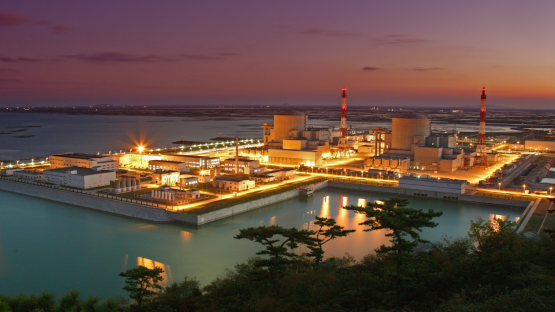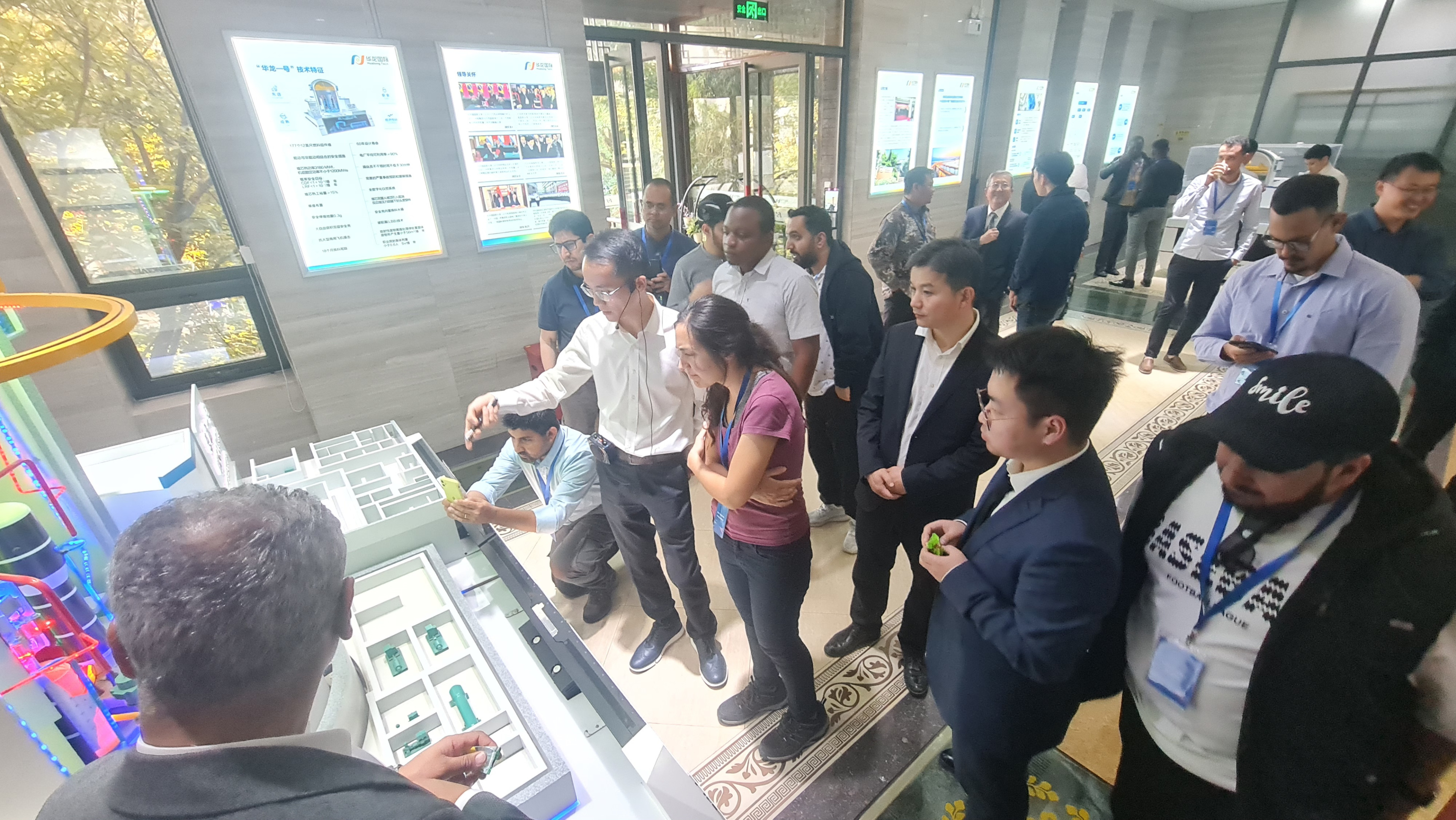Around 40 young nuclear professionals from 23 countries participated in specialized training on areas relevant to the entire nuclear energy lifecycle, to expand on their technical competencies and future managerial skills required to support national nuclear energy strategies. The Nuclear Energy Management (NEM) School took place at the end of October in China, a country with 55 nuclear power reactors in operation, and where more than one third of the world’s nuclear newbuilds are being constructed. The school offered lectures on various topics related to the peaceful uses of nuclear technology, from energy and sustainability to safety, security and safeguards.
“Training of personnel and future managers for the national nuclear industry holds strategic significance for my country,” said Arman Miniyazov, the Laboratory Head at the Institute of Atomic Energy at the National Nuclear Center in Kazakhstan. “What I learned during these two weeks will be valuable in the implementation of ongoing research projects, the organization of training courses, and the management of nuclear knowledge, all within the framework of my professional activities,” he added.
The NEM School was organized by the IAEA and Nuclear Industry College (NIC), with financial support from the China National Nuclear Corporation (CNNC). The curriculum included presentations by the IAEA and local experts on nuclear energy topics such as advanced nuclear technologies, human resource development, economic aspects, stakeholder engagement, safety, security, safeguards and legal aspects. The school also provided an overview of good practices in sustainable development of nuclear energy, and included technical visits to nuclear facilities at Fuqing Nuclear Power Plant, China Institute of Atomic Energy, Institute of Nuclear and New Energy Technology, Tsinghua University (Changping Campus), Hualong Nuclear Power Technology Co., Ltd, and HTA Co., Ltd.
“Learning about China’s nuclear power programme and taking part in the technical visits was very useful because it covered different kinds of technologies, from experimental research reactors to fast reactors, said María Angélica Olivera Muñoz, a Material and Process Division Manager at the Nuclear Fuel Engineering Department at the National Commission of Atomic Energy in Argentina. “The display of the diverse range of technologies available and experts from different areas of the nuclear field made this an incredible experience.”
China has one of the fastest construction periods for new build reactors, with an average of about six years from start to completion. Since 2022, China has started construction on eight new reactors. China also started to operate its first small modular reactors in 2022.
Gao Lei, President of the NIC said, “The NIC is pleased with the opportunity to contribute to the sustainable development of nuclear talent for IAEA Member States. I sincerely hope participants could share and spread the knowledge they gained in the school.”
As China and other countries continue to expand their nuclear fleet, the education, training and development provided by IAEA NEM schools will continue to help advance students’ competencies and skill sets. The schools are a key IAEA mechanism to support the development of a robust future nuclear workforce, which is an integral part and backbone of all nuclear power programmes.
“As the demand for nuclear energy continues to grow, it is crucial to ensure that future managers are equipped with the necessary skills and knowledge to effectively lead in this field,” said Helena Zhivitskaya, the IAEA Knowledge Management Specialist and Scientific Secretary of the NEM School. “By providing comprehensive training during the NEM School, these young professionals can navigate the complex regulatory frameworks, safety protocols, and technological advancements associated with nuclear energy and its applications. This will not only enhance their ability to make informed decisions but also contribute to the safe and sustainable development of nuclear power for the benefit of society.”







